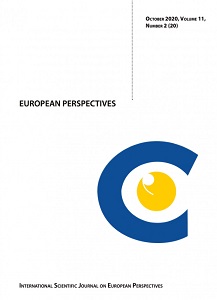Dayton Peace Accords – A Turning Point in the Historical Sustainability of Bosnia and Herzegovina
Dayton Peace Accords – A Turning Point in the Historical Sustainability of Bosnia and Herzegovina
Author(s): Mirko PejanovićSubject(s): Diplomatic history, Military history, Political history, Transformation Period (1990 - 2010), EU-Accession / EU-DEvelopment, Wars in Jugoslavia
Published by: Mednarodni inštitut za bližnjevzhodne in balkanske študije IFIMES
Keywords: Dayton peace agreement; Dayton Constitution; limitations; reform process; wartime presidency; the EU Special Representative;
Summary/Abstract: The article examines the social-historical context of the beginning of the war and aggression against Bosnia and Herzegovina in April 1992 that led to unprecedented sufferings of civilians, ethnic cleansing and genocide in Srebrenica. The peace treaty was signed on 21 November 1995 in Dayton. Over the past 25 years, Bosnia and Herzegovina implemented a number of reforms that allowed for development of the state on its way towards its integration into the EU and NATO. Within this reform process the most complex part is the constitutional reform. It will provide the framework for elimination of the limitations of the Dayton Constitution, which have rendered Bosnia and Herzegovina unfunctional as a state. This demands a new strategy of the international community and the European Union for the implementation of the Dayton peace agreement. Five priorities of such strategy are presented and commented in the concluding part.
Journal: International scientific journal European Perspectives
- Issue Year: 11/2020
- Issue No: 2 (20)
- Page Range: 17-39
- Page Count: 23
- Language: English

